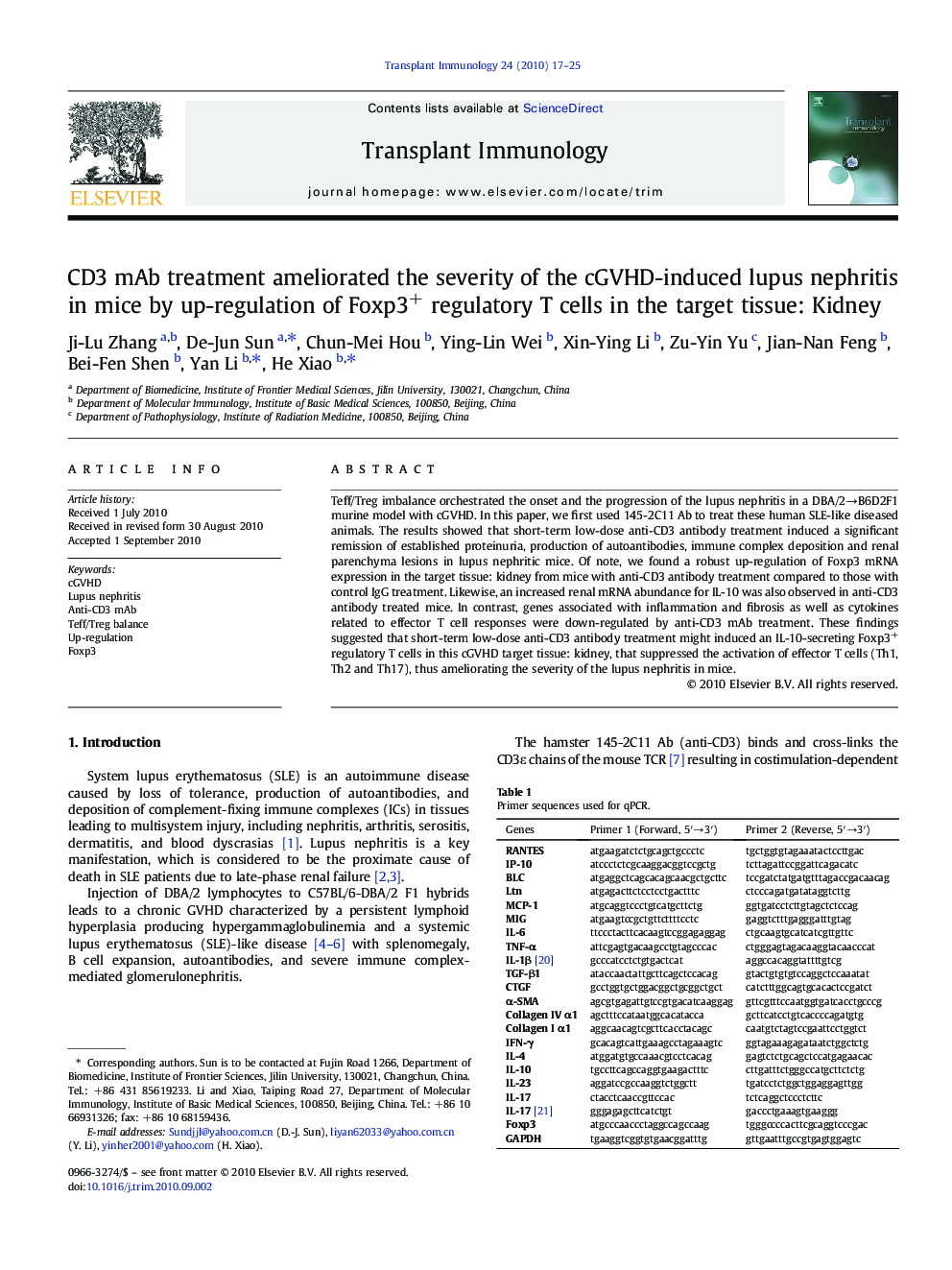| Article ID | Journal | Published Year | Pages | File Type |
|---|---|---|---|---|
| 3392211 | Transplant Immunology | 2010 | 9 Pages |
Teff/Treg imbalance orchestrated the onset and the progression of the lupus nephritis in a DBA/2→B6D2F1 murine model with cGVHD. In this paper, we first used 145-2C11 Ab to treat these human SLE-like diseased animals. The results showed that short-term low-dose anti-CD3 antibody treatment induced a significant remission of established proteinuria, production of autoantibodies, immune complex deposition and renal parenchyma lesions in lupus nephritic mice. Of note, we found a robust up-regulation of Foxp3 mRNA expression in the target tissue: kidney from mice with anti-CD3 antibody treatment compared to those with control IgG treatment. Likewise, an increased renal mRNA abundance for IL-10 was also observed in anti-CD3 antibody treated mice. In contrast, genes associated with inflammation and fibrosis as well as cytokines related to effector T cell responses were down-regulated by anti-CD3 mAb treatment. These findings suggested that short-term low-dose anti-CD3 antibody treatment might induced an IL-10-secreting Foxp3+ regulatory T cells in this cGVHD target tissue: kidney, that suppressed the activation of effector T cells (Th1, Th2 and Th17), thus ameliorating the severity of the lupus nephritis in mice.
